Questions andAnswers About Your Journey to God

Fr. Benedict J. Groeschel,
 C.F.R.
C.F.R. 
Questions andAnswers About Your Journey to God

Our Sunday Visitor Publishing Division
Our Sunday Visitor, Inc.
Huntington, Indiana 46750
The Scripture citations contained in this work are taken from the Catholic Edition of the Revised Standard Version of the Bible (RSV), copyright 1965 and 1966 by the Division of Christian Education of the National Council of the Churches of Christ in the United States of America. Used by permission. All rights reserved.
Every reasonable effort has been made to determine copyright holders of excerpted materials and to secure permissions as needed. If any copyrighted materials have been inadvertently used in this work without proper credit being given in one form or another, please notify Our Sunday Visitor in writing so that future printings of this work may be corrected accordingly.
Copyright 2007 by Our Sunday Visitor Publishing Division Our Sunday Visitor, Inc. Published 2007
12 11 10 09 08 07 1 2 3 4 5 6 7 8 9
All rights reserved. With the exception of short excerpts for critical reviews, no part of this work may be reproduced or transmitted in any form or by any means whatsoever without permission in writing from the publisher. Write:
Our Sunday Visitor Publishing Division
Our Sunday Visitor, Inc.
200 Noll Plaza
Huntington, IN 46750
ISBN 978-1-59276-333-7 (Inventory No. T432)
LCCN: 2007932070
Cover design by Monica Haneline
Interior design by Sherri L. Hoffman
Cover background image by Shutterstock
PRINTED IN THE UNITED STATES OF AMERICA
CONTENTS

FOREWORD

More than twenty years ago, I attended a retreat given by Fr. Benedict Groeschel. It was based on a book that he had recently published with Crossroad Publishing entitled Spiritual Passages. The retreat was absolutely, without reservation, the best retreat I had ever attended. Father Benedict opened up a treasure house of Catholic spirituality to my fellow retreatants and me.
Ever since I became an acquisitions editor for Our Sunday Visitor in the late 1990s, it has been a personal dream of mine for Father Benedict to write a book for us that will provide simple answers to the questions that people, like me, are often confronted with as we make our way along our pilgrimage toward God. Thankfully, Father has agreed to take me up on this offer.
Father Benedict says in one of the answers in this book: I decided decades ago that my speaking and preaching would largely be an attempt at spiritual direction given to groups. In this book, Father accomplishes this in a very direct way, by answering questions. Many of the questions were derived from a large group of people who were asked to submit questions that they would like Father Benedict to answer about the spiritual life. These people were responding to a query posted on my online blog, Annunciations. Other questions were my own, and still others were added by Father Benedict to reflect what people have asked him over his many years of giving spiritual direction.
As this book was being completed, I visited Father Benedict at Trinity Retreat House in New York. He was in the midst of giving a retreat to priests and graciously allowed me to sit in on one of the conferences. It was an uplifting talk on the virtue of hope. There was one line that struck me in Fathers talk, a line he repeated several times: Hope is ultimately an expectation for eternal life.
The spiritual life is hope-filled because we, unlike those without faith, expect to live forever. Archbishop Bruno Forte has said it well: Life is either a pilgrimage or a foretaste of death. Thanks be to God for giving us the faith so that our life is a journey toward Him!
May the answers Father Benedict provides in this book give you great hope and help you navigate your way toward the Lord every day of your life and, ultimately, for all eternity.
Michael Dubruiel
Feast of the Visitation of Mary
May 31, 2007
Part One
THE SPIRITUAL LIFE

I.
THE LIFE OF THE SPIRIT

 What do we mean by the term the spiritual life?
What do we mean by the term the spiritual life?
This expression is widely used to describe that aspect of someones life which is pointed toward realities that are intangible things that cannot be seen or touched and it is used by those of different religions and points of view.
Christians use the term to mean that aspect of our life that seeks God and tries to come to greater knowledge or possession of Him. Christians do this by following Christs example. Because Christ is God and a Person of the Holy Trinity, we want to come closer to Him and know Him better. In a sense we try to establish an intimate relationship with Him, which is possible only through grace, the gift of His love. Therefore, the Christian spiritual life is the life of grace: [A] part from me you can do nothing (John 15:5).
 How is it possible to have an intimate relationship with Christ?
How is it possible to have an intimate relationship with Christ?
It seems clear that Our Lord invites us to such a relationship: If a man loves me, he will keep my word, and my Father will love him, and we will come to him and make our home with him (John 14:23). Behold, I stand at the door and knock; if any one hears my voice and opens the door, I will come in to him and eat with him, and he with me (Revelation 3:20); He also says, Come to me, all who labor and are heavy laden, and I will give you rest. Take my yoke upon you, and learn from me; for I am gentle and lowly in heart, and you will find rest for your souls. For my yoke is easy, and my burden is light (Matthew 11:2830). Finally He says, I am with you always, to the close of the age (Matthew 28:20). All of this invites us to a personal spiritual life, one that relates intimately with God through His Son.
 Does the spiritual life differ from the rest of a persons life, or is there only one life, of which the spiritual is very much a part?
Does the spiritual life differ from the rest of a persons life, or is there only one life, of which the spiritual is very much a part?
Each of us is only one person. A human being is a union of body and soul, of matter and spirit. We act on many different levels. Each level can be called a life of its own. We have a physical life of the body. Many people have a married life, a single life. We can speak of the intellectual life. When we speak of a persons attention and behavior that pertain to the following of Christ and the possession of God, we call it the spiritual life.
 Is there a spiritual life that is common to all men and women regardless of their beliefs?
Is there a spiritual life that is common to all men and women regardless of their beliefs?
It has traditionally been Church teaching that there is a universal call to holiness, or to the deep possession of God through the mind and soul. Consequently, we can say that in one way there is a common spiritual life. However, because of different religious and spiritual beliefs, people live out that reality differently. A devout Buddhist, for example, seeking to come closer to God will lead a certain kind of spiritual life, and the same would be true of followers of other religions. However, my own personal experience suggests that all who have made genuine progress on the journey to God and whose spiritual life deeply affects their daily existence have something in common. They usually know a peacefulness because their life is centered on one reality. They have a sense of quiet in prayer or contemplation because the reality they consider most important is not of the changing physical world. Generally speaking, I have also found that those who struggle with spiritual growth in different religions and cultures are kindly people who show deference and respect for others, even those with whom they disagree. I have often travelled in the Far East and visited shrines and monasteries of other religions. I have always been courteously received at such places and have noticed that in one way or another we are all walking on parallel paths toward God.
Next page

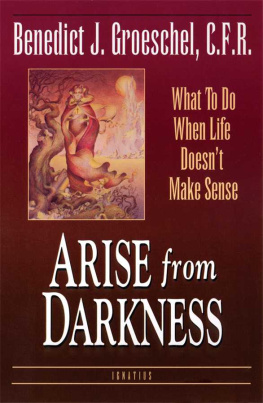
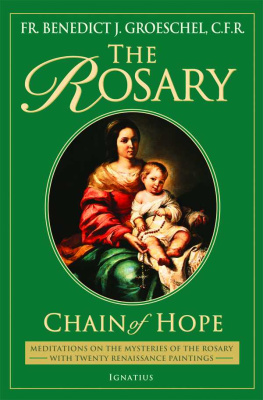
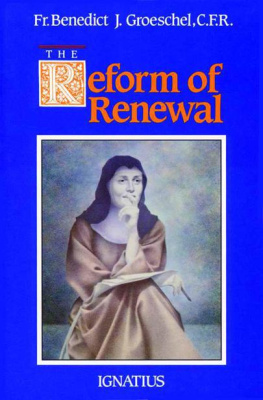
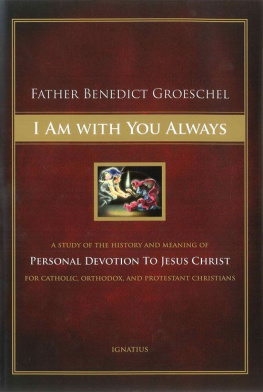
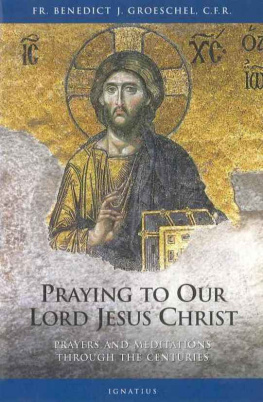
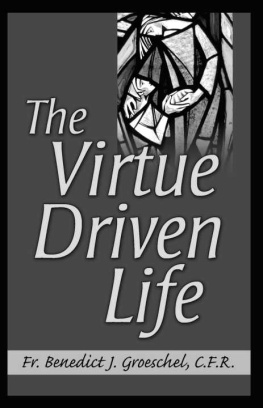


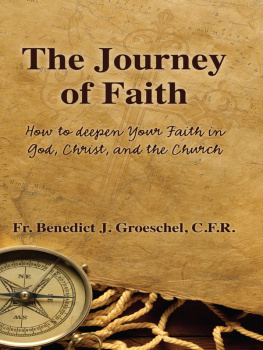
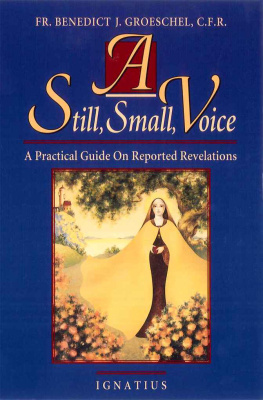

 C.F.R.
C.F.R. 
 What do we mean by the term the spiritual life?
What do we mean by the term the spiritual life?